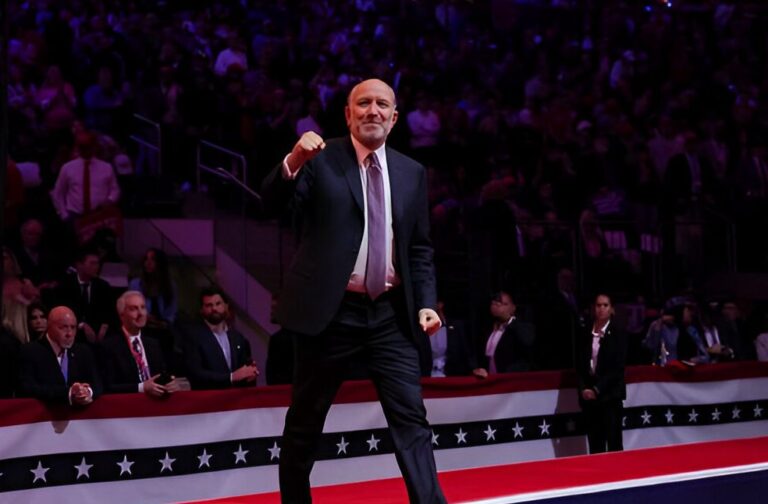Washington, D.C.: Former President Donald Trump has appointed Howard Lutnick, CEO of Cantor Fitzgerald and co-chair of his transition team, as the next Commerce Secretary. Lutnick will lead the administration’s efforts on tariffs and trade, key elements of Trump’s economic agenda.
In his announcement, Trump lauded Lutnick as a “dynamic force on Wall Street for more than 30 years” and emphasised his contributions to assembling the new administration. Lutnick will also direct the Office of the U.S. Trade Representative, extending his influence in shaping U.S. trade policy.
Known for his strong support of competitive economic strategies, Lutnick has been a vocal supporter for policies such as broad tariffs and the elimination of the income tax. These ideas have divided opinion within the financial sector. His appointment firms his role in advancing Trump’s vision for reshaping U.S. trade and industry.
Lutnick, a New York native and Haverford College graduate, has built a reputation for resilience and determination. Orphaned as a teenager, he rose quickly within Cantor Fitzgerald, evolving its president and CEO within a decade. His leadership was stretched during the September 11 attacks, which claimed the lives of over 600 employees, including his brother. Lutnick’s emotional reaction to the tragedy drew national attention and marked a turning point in his career.
Thank you, President Trump for your trust in me to help Make America Great Again. As the next Secretary of Commerce, I will join the best administration the US has ever seen and unleash our full economic potential. pic.twitter.com/CTr0sdH6nt
— Howard Lutnick (@howardlutnick) November 19, 2024
Trump’s decision to appoint Lutnick comes with speculation about the Treasury Secretary position, which remains unfilled. Billionaire Elon Musk recently endorsed Lutnick for the role while criticising another candidate, Scott Bessent, as lacking transformative vision.
As Commerce Secretary, Lutnick will supervise a department pivotal to U.S. economic and national security interests, including technology export restrictions, domestic manufacturing policies, and trade enforcement. His leadership is expected to further Trump’s vision of revitalising U.S. industry and positioning the nation as a global economic powerhouse.



